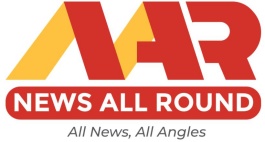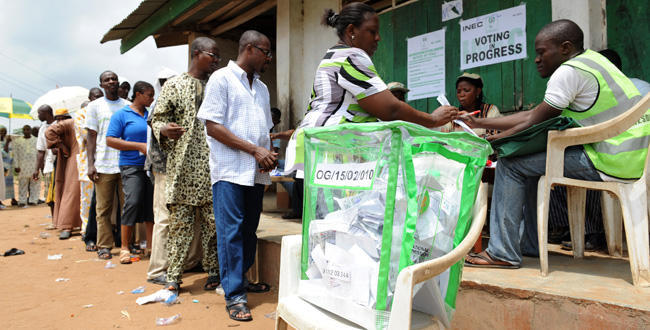PDP, APC spent above their income for 2015 election-report
Nigeria’s two leading political parties, the Peoples democratic Party(PDP) and Nigeria’s ruling party, the All Progressives Congress (APC), spent far above what they earned as income in 2015, a Premium Times report has disclosed.
Nigeria’s ruling party, All Progressives Congress, and the main opposition, Peoples Democratic Party, have filed their official financial reports on the 2015 general elections, with claims they both spent a little below N8 billion in the keenly contested polls.
While the APC said it spent only N2.9 billion, the PDP — which was the ruling party at the time — said it spent N4.8 billion for the polls.
The details are contained in the parties’ audited reports submitted to the Independent National Electoral Commission (INEC) as required by law.
The Electoral Act requires political parties to submit their financial statements within six months after an election, while the commission is must to publish the audited reports in at least three national newspapers.
The APC and the PDP disclosures apparently came years behind schedule.
Nigerian political parties have been reluctant to release details of their spending since 2010 when the government stopped funding their activities.
The parties argue that since they no longer benefit from public funds, they have no business disclosing to Nigerians how their resources are expended.
In their filings, obtained exclusively by PREMIUM TIMES, both APC and PDP said they spent far ahead of their generated revenues in the election year. The huge deficits were covered by surpluses from 2014, the statements show.
The APC report, audited by Mai-Alheri and Co., said the party generated only N604.5 million in 2015, but spent N2.9 billion, leaving a deficit of N2.3 billion.
Its income, according to the report, was derived from the sale of nomination forms and donation/gifts.
Nomination forms generated N329.5 million, and donations and gifts brought in N275 million.
The funds were spent on administration, election, repairs and maintenance, welfare and ‘financial’ charges.
Administration cost was put at N296.3 million, N2.6 billion on election, N56.5 million on repairs and maintenance, N485,800 on welfare and N15.4 million on financial charges.
The APC reported it had a surplus in the previous year, 2014, where it earned about N6.4 billion and spent N4 billion.
In the report, the party also named some fixed assets it acquired.
The assets assets are: office equipment at N5.1 million, APC Data Centre equipment at N300,000, furniture and fittings at N6.8 million, motor vehicles at N20 million and library books at N3.4 million totaling about N35.8 million.
In its review, INEC, through its external auditors, said the APC’s internal audit system was not properly in place, saying that could make it difficult to ascertained the full financial position of the party.
It also pointed out there were no proper records of fixed assets, making it difficult for the commission to locate important assets of the party. It also said that APC’s financial transactions were carried out manually.
The commission recommended the party put in place internal audit and control system, ensure effective monitoring of party’s fixed assets and computerize the operations of its financial and administrative activities.
The then ruling PDP, according to its audit report done by Paul Akinade Adebimpe and Co, earned only N799 million in 2015, but spent N9.53 billion leaving a deficit of N8.7 billion.
Its income was derived from donation and levies and others. Donations and levies raked in N200 million and other income was N599.2 million.
The party’s income was spent on administration, election, national secretariat and financial expenses.
While N1.7 billion was spent on administration, N4.8 billion went to election, N2.8 was for national secretariat and N54 million for financial expenses.
The party had a surplus in 2014, when it earned N13 billion and spent N3.6 billion.
Unlike the APC, INEC said PDP kept an internal control system for their transaction but said recording was still done manually, which the commission noted could be prone to error.
INEC however noted the party had no budget for the period, therefore, there was no budget document to review inline with the audit process. This, the commission said, could allow for excessive and unchecked spending within the party.
The commission said the fixed asset register was not maintained for the period.
The commission recommended that the party re-equip its finance unit with an accounting software for effective financial reporting of its transaction, endeavour to prepare budget for the year and work within the budget, and establish a fixed asset register.
It also recommended PDP should deploy an electronic system to capture data of members at the national, state offices and zonal chapter.

